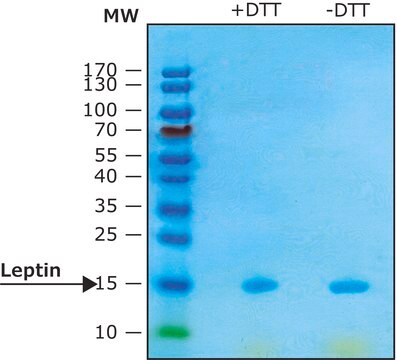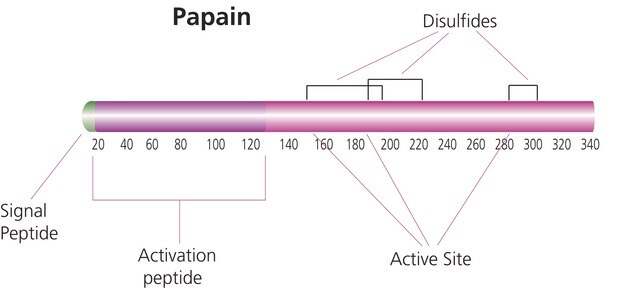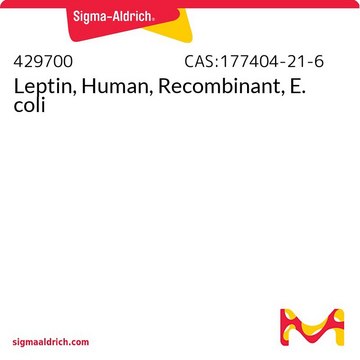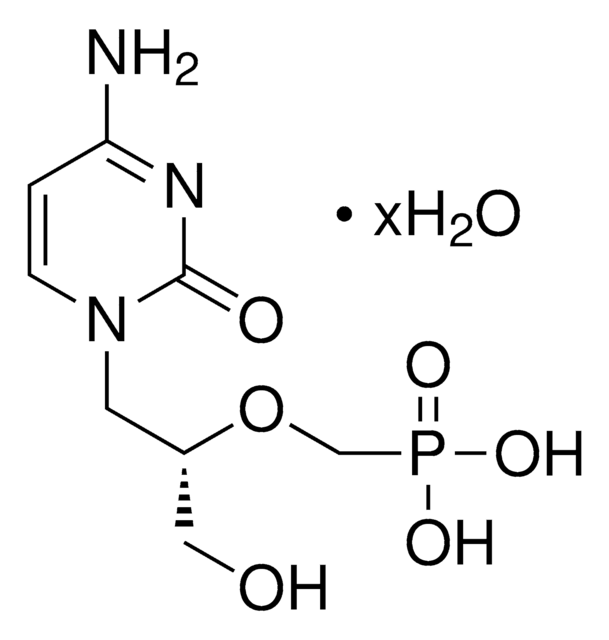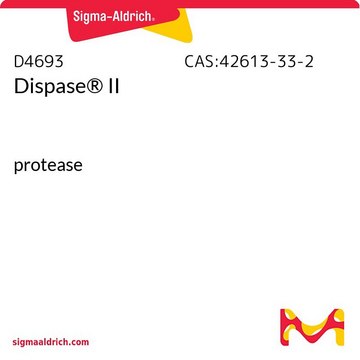SRP4901
Adiponectin human
recombinant, expressed in E. coli, ≥90% (SDS-PAGE)
Sinônimo(s):
ACDC, APM-1, Acrp30, AdipoQ, GBP-28
About This Item
Produtos recomendados
fonte biológica
human
recombinante
expressed in E. coli
Ensaio
≥90% (SDS-PAGE)
forma
lyophilized
peso molecular
~30 kDa
embalagem
pkg of 25 μg
condição de armazenamento
avoid repeated freeze/thaw cycles
Impurezas
endotoxin, tested
nº de adesão NCBI
nº de adesão UniProt
Condições de expedição
wet ice
temperatura de armazenamento
−20°C
Informações sobre genes
human ... ADIPOQ(9370)
Descrição geral
Aplicação
Ações bioquímicas/fisiológicas
forma física
Reconstituição
Nota de análise
Código de classe de armazenamento
11 - Combustible Solids
Classe de risco de água (WGK)
WGK 3
Ponto de fulgor (°F)
Not applicable
Ponto de fulgor (°C)
Not applicable
Certificados de análise (COA)
Busque Certificados de análise (COA) digitando o Número do Lote do produto. Os números de lote e remessa podem ser encontrados no rótulo de um produto após a palavra “Lot” ou “Batch”.
Já possui este produto?
Encontre a documentação dos produtos que você adquiriu recentemente na biblioteca de documentos.
Os clientes também visualizaram
Artigos
Lipid Induced Insulin Resistance
Nossa equipe de cientistas tem experiência em todas as áreas de pesquisa, incluindo Life Sciences, ciência de materiais, síntese química, cromatografia, química analítica e muitas outras.
Entre em contato com a assistência técnica